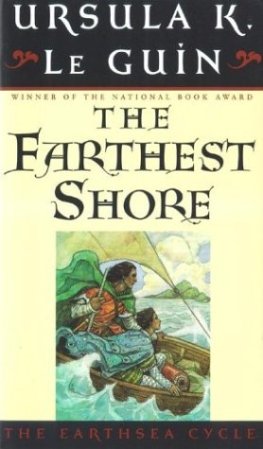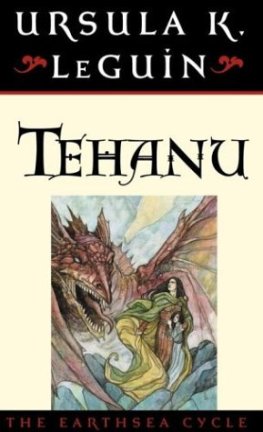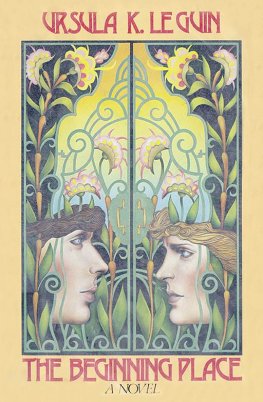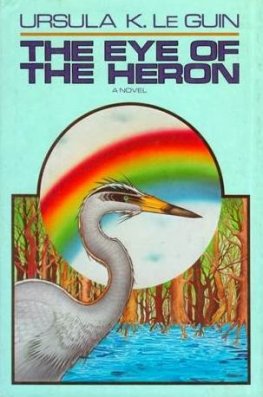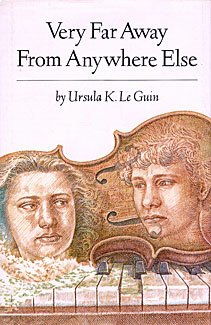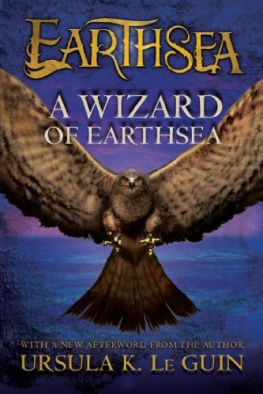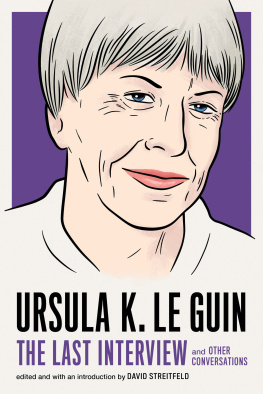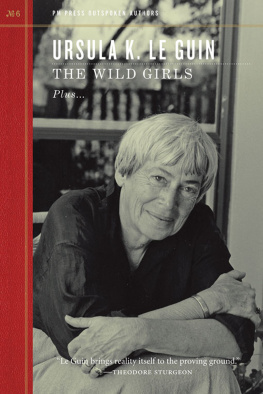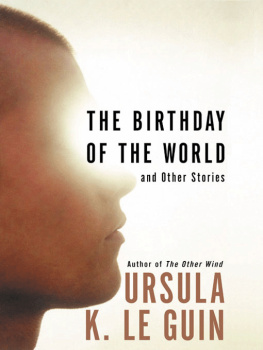Ursula Le Guin - Wild Girls
Here you can read online Ursula Le Guin - Wild Girls full text of the book (entire story) in english for free. Download pdf and epub, get meaning, cover and reviews about this ebook. genre: Science fiction. Description of the work, (preface) as well as reviews are available. Best literature library LitArk.com created for fans of good reading and offers a wide selection of genres:
Romance novel
Science fiction
Adventure
Detective
Science
History
Home and family
Prose
Art
Politics
Computer
Non-fiction
Religion
Business
Children
Humor
Choose a favorite category and find really read worthwhile books. Enjoy immersion in the world of imagination, feel the emotions of the characters or learn something new for yourself, make an fascinating discovery.

- Book:Wild Girls
- Author:
- Genre:
- Rating:3 / 5
- Favourites:Add to favourites
- Your mark:
- 60
- 1
- 2
- 3
- 4
- 5
Wild Girls: summary, description and annotation
We offer to read an annotation, description, summary or preface (depends on what the author of the book "Wild Girls" wrote himself). If you haven't found the necessary information about the book — write in the comments, we will try to find it.
Wild Girls — read online for free the complete book (whole text) full work
Below is the text of the book, divided by pages. System saving the place of the last page read, allows you to conveniently read the book "Wild Girls" online for free, without having to search again every time where you left off. Put a bookmark, and you can go to the page where you finished reading at any time.
Font size:
Interval:
Bookmark:
Wild Girls
I
Bela ten Belen went on a foray with five companions. There had been no nomads near the City for several years. Harvesters in the Eastern Fields reported seeing smoke of fires beyond the Dayward Hills, and the six young soldiers declared they would go see how many camps there were. They said nothing about attacking the camps. They took with them as guide a Dirt man, Bedh Handa, who had been born a nomad of the Dayward tribes, captured as a child and brought to the City as a slave. Bedh's sister Nata Belenda, famous for her beauty, was the wife of Bela's brother Alo ten Belen. Bedh had guided forays against the nomad tribes before.
The soldiers walked and ran all day following the course of the East River up into the hills. In the evening they came to the crest of the hills and saw on the plains below them, among the watermeadows and winding streams, three circles of the nomads skin huts.
They came to the marshes to gather mudroots, the guide, Bedh, said. They're not planning a raid on the Fields of the City. If they were, the three camps would be close together."
Who gathers the roots? ten Belen asked.
Men and women. Old people and children stay in the camps."
When do the people go to the marshes?"
Early in the morning."
We'll go down to that nearest camp tomorrow after the gatherers are gone, said ten Belen.
It would be better to go to the camp beyond that one, the one on the river, Bedh said.
Ten Belen did not answer the Dirt man. He said to his companions, Those are his people. I think he should be shackled."
They agreed, but none of them had brought shackles. Ten Belen began to tear his cape into strips.
Why do you want to tie me up, lord? Bedh asked with his fist to his forehead to show respect. Have I not guided you to the nomads? Am I not a man of the City? Is not my sister your brother's wife? Is not my nephew your nephew, and a god? Why would I run away from the great wealthy City to those ignorant people who starve in the wilderness, eating mudroots and crawling things? But the Crown men did not answer the Dirt man. They tied his legs with the lengths of twisted cloth, pulling the knots in the silk so tight they could not be untied but only cut open. Ten Belen appointed three of them to keep watch in turn that night.
Tired from walking and running all day, the young man on watch before dawn fell asleep. Bedh put his legs into the coals of their fire and burned through the silken ropes and stole away.
Waking in the morning and finding the Dirt man gone, Bela ten Belen's face grew heavy with anger, but he said only, He will have warned that nearest camp. We'll go to the farthest one, off there on the high ground."
They'll see us crossing the marshes, said Dos ten Han.
Not if we walk in the rivers, ten Belen said.
When they came down out of the hills onto the flat lands, they walked along streambeds, hidden by the high reeds and willows that grew on the banks. As it was autumn, before the rains, the water was shallow enough that they could make their way along beside it or wade in it. Where the reeds grew thin and low and the stream widened out into the marshes, they crouched down and found what cover they could. No one in the nomad camps saw them pass.
By midday they came near the farthest of the camps, which was on a low grassy rise like an island among the marshes. They could hear the voices of people gathering mudroot on the eastern side of the island. Keeping to the south, they crept up through the high grass and came to the camp. No one was in the circle of skin huts but a few old men and women and a number of children. The children were turning over roots spread on the grass, while the old people cut up the largest roots and put them on racks over low fires to hasten the drying. The six Crown men came among them suddenly with their swords drawn. They cut the throats of the old men and women and then pursued the children, some of whom ran away down into the marshes, though others stood staring, uncomprehending.
All the soldiers were young men on their first foray; they had made no plans. Ten Belen had said to them, I want to go out there and kill some of those thieves and bring home slaves, which seemed a good plan to them. To his friend Dos ten Han he had said, I want to get some new Dirt girls, there's not one in the City I can stand to look at. Dos ten Han knew he was thinking about the beautiful nomad-born woman his brother had married. All the young Crown men thought about her and wished they had her, or a girl as beautiful as her.
Get the girls, ten Belen shouted to the others, and they all ran at the children, seizing one or another. The older children had mostly fled like deer, and only the young ones still stood staring, or began too late to run. The soldiers each caught one or two and dragged them back to the center of the hut-village, where the old people lay in their blood in the sunlight.
They had brought no ropes to tie the children with, and had to keep hold of them. One little girl fought so fiercely, biting and scratching, that the soldier let her go; she ran away screaming shrilly for help. Bela ten Belen ran after her, took her by the hair, and cut her throat to silence her screaming. His sword was sharp and her neck was soft and thin; her body dropped away from her head, held on only by the bones at the back of the neck. He dropped her and came back to the others. He told them each to pick one child they could carry and follow him.
Where shall we run? they said. The people over there will be coming. For the children who had escaped had all run down the east side of the hill toward the marsh where their parents had gone.
Follow the river back, he said, and set off running, carrying a girl of about five years old. He held her wrists and slung her on his back as if she were a sack. The others followed him, each with a child, two of them babies a year or two old.
The raid had occurred so quickly that they had a long lead on the nomads who came straggling round the hill following the children who had run to them. The soldiers were able to get down into the rivercourse, where the banks and reeds hid them from people looking for them even from the top of the island.
The nomads scattered out through the reedbeds and meadows west of the island, looking for them on their way back to the City.
Ten Belen led them not west but southeast, down a branch of the river. They trotted and ran and walked as best they could in the water and mud and rocks of the riverbed. At first they heard voices far away behind them. The heat and light of the sun filled the world. The air above the reeds was thick with stinging insects. Their eyes soon swelled almost closed with bites and burned with salt sweat. Crown men are not used to carrying burdens and they found the children they carried heavy, even the little ones. They struggled to go fast but went slower and slower along the winding channels of the water, listening for the nomads behind them. When the children made any noise, the soldiers slapped or shook them till they were still. The girl Bela ten Belen carried hung like a stone on his back and never made any sound.
When at last the sun sank behind the Dayward Hills, that seemed strange to them, for they had always seen the sun rise behind those hills. They had gone a long way south and were still a long way east of the hills. They had heard no sound of their pursuers since early in their flight. The gnats and mosquitoes growing even thicker with dusk drove them at last up onto a drier meadowland, where they could sink down in a place where deer had lain and be hidden by the high grasses. There they all lay while the light died away. The great herons of the marsh flew over with heavy wings. Birds down in the reeds called. The men heard each other breathing, and the whine and buzz of insects. The little children made tiny whimpering noises, but not often, and not loud. Even the babies of the nomad tribes were used to fear and silence.
Font size:
Interval:
Bookmark:
Similar books «Wild Girls»
Look at similar books to Wild Girls. We have selected literature similar in name and meaning in the hope of providing readers with more options to find new, interesting, not yet read works.
Discussion, reviews of the book Wild Girls and just readers' own opinions. Leave your comments, write what you think about the work, its meaning or the main characters. Specify what exactly you liked and what you didn't like, and why you think so.

